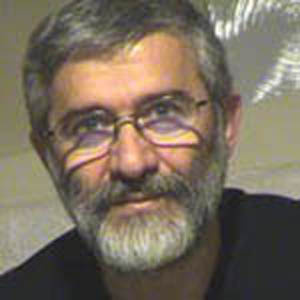Taliban Is an Afghan Reality

Taliban resurrection and the future of Indian subcontinent
The Pakistani government has restored peace in Swat region by handing over its control to Islamist paramilitary. But what will the regional and global repercussions of this decision be? Iranian Diplomacy has interviewed Mir Mahmoud Musavi, Iran’s former ambassador to Pakistan on the issue:
The Swat valley has been handed over to extremists by the Pakistani government. How do you view the compromise and its consequences?
I don’t think that would be predictable since this measure is the first in its kind. If we only look at this specific period of time and an area as limited as Swat, definitely security will be restored in the region. But this will not end here and there may be other issues to consider, like enforcing the shari’a which is supposed to cover fields such as judgment, trade, education etc. But whether shari’a is applicable in these fields or not is a matter of question. Enforcing religious code in a tribal area asks for specific mechanisms and human forces. And also there is the problem of diverse interpretations of shari’a. All these problems have to be solved at the first step.
When it comes to implementing the religious code, some may think of its advocators as the older generation. But actually most of these people belong to the younger generation. The situation in Swat is like a scrambled image that is nearly impossible to decode. The government’s measure may be regarded positively since it put an end to tensions. On the other hand, we have little reason to hope that the region remains peaceful. Great efforts must be made by both the government and tribal leaders to control the situation.
I would also like to point to another issue. Swat hadn’t been a part of FATA (Federally Administered Tribal Areas); however, it came under extremists’ control. An immediate question which comes to our mind is that will this happen for other regions? There are already talks about that in the media.
Of course we should not simplify the subject. There are seven tribal areas with their leaders which –besides their commonalities- may have different ideas. Regional equilibrium depends on tribal leaders, tribal configuration, and some other influential factors. Any judging now would be premature. But agreement between the government and tribal leaders has lent publicity to an issue among Pakistan executives and their American and European supporters: that partial enforcement of shari’a may be in fact advantageous. However, we still can’t picture a clean-cut image from the situation.
An issue currently raised is that with this agreement Taliban will restore strength in this region and this may cause problems anew, especially inside Afghanistan. How will the agreement affect Taliban’s future?
If by ’this region’ you mean the Swat valley, according to Pakistani media Taliban already controlled %95 of the area before the agreement. So whether they restitute or not, they are powerful in the area. Of this power, some they have gained themselves and some is the result of mistakes made by the Pakistani government and West.
Now if by the ’region’ we mean the seven tribal areas, I can mention two points: first, it is the Western media that under- or over-estimate Taliban. Taliban have always existed in Pakistan and Afghanistan. US military operation after 9/11 inflicted some casualties on them and pushed them inside their shell for some years. But in my opinion these casualties never surpassed 20 percent and the group managed to maintain 80 percent of its forces. The second point relates to West’s mistakes. Raids which led to civilians’ death incited anger and directing popular support towards Taliban made them more powerful.
There are fewer voices about rooting out Taliban in Western media nowadays. Even Western officials are not willing to eliminate Taliban and call for negotiations. Apparently they have accepted Taliban as a part of the Afghan society. And they’re holding substantive talks with Taliban while negotiations were assumed to be quite limited previously. We should wait for further reports on the whole situation but some initial deductions would be:
One, Taliban is accepted as a part of the Afghan and Pakistani society. Two, negotiations is considered as a serious alternative to military operation. Three, a part of Taliban’s demands for implementing religious code have been accepted.
These are three considerable developments that will have determinative impacts on socio-political structures.
Taliban and other extremists are monopolistic groups that wouldn’t definitely give assent to controlling Swat. Don’t you think they will ask for more?
Looking at the past 10 years, this radical branch of Islam has been extending its influence, whether in its birthplace -Afghanistan and Pakistan- or in other parts of the Subcontinent. I mean even India is inflicted with this mentality, and you couldn’t even imagine that five years ago. Unfortunately this way of thinking is still attracting supporters. I believe that Talibanism is not a traditional, but a new, radical interpretation of Islam. Some regard it as a traditional understanding of Islam, but I think the Islamic tradition in Subcontinent is different. There we have had a tolerant, Sufistic Islam. Radical interpretations of Islam such as Wahhabism have flourished in Arabian Peninsula not in the Indian subcontinent. Talibanism is not considered as traditional Islam in this region. Definitely the spread of this mentality is truly worrisome, but the way it has been dealt with is one reason for its expansion. We should adopt some sort of interaction that limits and de-cultivates this mentality.

